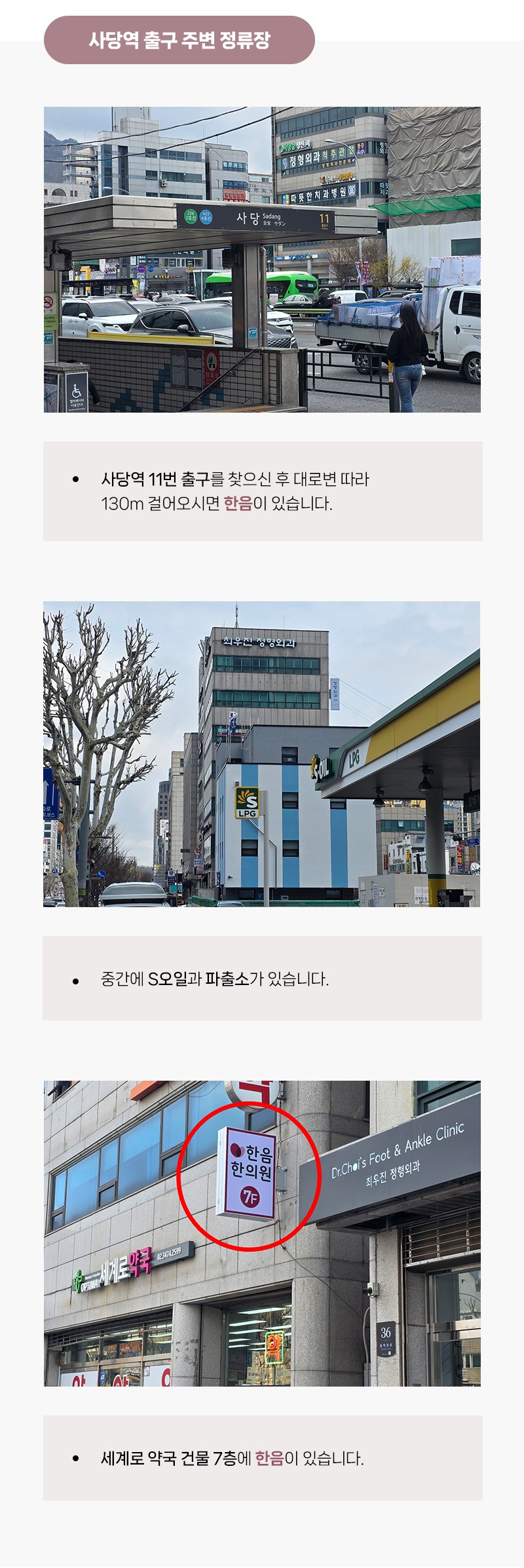Haneum
의학 논문
한음이 발표한 의학논문입니다.
불면증 변증도구 신뢰도와 타당도 평가 및 심리검사와의 상관성에 대한 초기연구
초록
Objectives: The purpose of this study was to evaluate the reliability and validity of the instrument on pattern identification for insomnia (PIT-Insomnia) and verify the correlation between PIT-Insomnia and psychological tests.
Methods: Two evaluators examined the pattern identification of the participants who met insomnia disorder diagnostic criteria of the Diagnostic and Statistical Manual of Mental Disorder, Fifth Edition (DSM-5) and took the Insomnia Severity Index (ISI) score over 15 once manually and twice using the PIT-Insomnia to measure the inter-rater and test-retest reliability.
We also conducted the following surveys: the Pittsburgh Sleep Quality Index (PSQI), the Korean version of Beck’s depression inventory (K-BDI), the Korean version of the State-Trait Anxiety Inventory (STAI-K), the Korean Symptom check-list-95 (KSCL-95), and the EuroQol-5 dimension (EQ-5D), to measure concurrent validity and correla-tion between the PTI-Insomnia and psychological tests.
Results:
1. The test-retest reliability analysis of the pattern identification results showed moderate agreement, and test-retest reliability analysis of each pattern identification score showed agreements from poor to moderate.
2. The inter-rater reliability analysis of the pattern identification results via manual showed slight agreement, when analysis was performed with calibration, the inter-rater reli-ability analysis of the pattern identification results via manual showed fair agreement.
3. The con-cordance analysis between results via manual and the PIT-Insomnia showed poor agreement, when the analysis was performed with calibration, concordance analysis showed fair agreement.
4. The con-cordance analysis between the PIT-Insomnia and the PSQI showed positive linear correlation.
5. The concordance analysis between the PIT-Insomnia and the PSQI, K-BDI, STAI-K, KSCL-95, and EQ-5D showed that non-interaction between the heart and kidney have positive linear correlation with the K-BDI, anxiety item of KSCL-95, dual deficiency of the heart-spleen have positive linear correlation with somatization item of KSCL-95, paranoia item of KSCL-95, heart deficiency with timidity have pos-itive linear correlation with stress vulnerability item of KSCL-95, parania item of KSCL-95, phlegm-fire harassing the heart have positive linear correlation with K-BDI, paranoia item of KSCL-95, depressed liver qi transforming into fire have positive linear correlation with the anxiety item of KSCL-95, parania item of KSCL-95, all pattern identification have negative linear correlation with EQ-5D.
Conclusions: The PIT-Insomnia has moderate agreement of reliability and reflects the severity of in-somnia since it has some concurrent validity with the PSQI. There are some correlations between the PTI-Insomnia with specific psychological tests, so we could suggest it can be used appropriately in the clinical situation.























